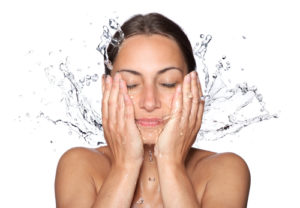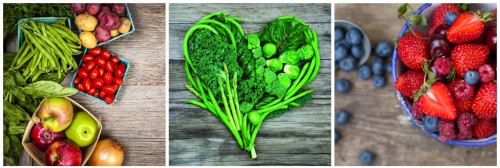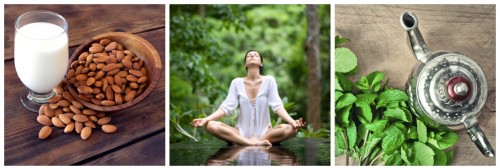 With an influx of hormones ‘all manner of frightening things’ happen to a teenager’s body – not that your teenager will show you or want to openly discuss these changes with you (and God knows we don’t want a visual on many of them either!) Some of these changes however are more stressful than others.
With an influx of hormones ‘all manner of frightening things’ happen to a teenager’s body – not that your teenager will show you or want to openly discuss these changes with you (and God knows we don’t want a visual on many of them either!) Some of these changes however are more stressful than others.
Typically young men are all good with growing biceps and young women with the need for a more “supportive bra”, but NO teenager is delighted by having a face full of acne…
As much of my week is spent with teenager’s (both mine and their friends) acne has been a topic we’ve spoken about on many occasions. They have asked me questions such as: “Why don’t your kids have acne?” or “Why do I have acne?” and “What can I do about it?”
They seem like simple questions but ‘break-outs’ and ongoing acne can have a severe impact on a teens self-esteem, especially during the awkward years of puberty when their main focus is ‘fitting in.’
However, it’s not only teenagers who suffer with acne, there are many adults who do as well. Like teens, these adults also wish they had clear skin and are often embarrassed. Low self-esteem is strongly linked to our overall emotional and mental well being, so it’s important we try our best to understand what we can do about acne and how we work through the issue. And if you’re a teen reading this… then I’ll try to hurry up and get to the “what to do section.”
So here are the facts…
Firstly you’re not alone! Acne is something approximately 85% of teenagers will experience in their lifetime. Acne can be either a passing phase or it can last well into adulthood, depending on the severity. While it is something almost all teenagers experience, in most circumstances it doesn’t have to be this way and there are straightforward steps to help manage and ultimately eliminate acne.
What is acne?
Acne is a skin condition characterized by red pimples, blackheads, whiteheads and cysts on the skin, most commonly on the face but it can also appear on the neck, back, shoulder and chest. It is due to inflamed or infected Sebaceous Glands, which are small glands in the skin that produce an oily matter known as Sebum. We usually have a love/hate relationship with sebum as just the right amount is needed to lubricate and protect our skin, but an excess amount can contribute to conditions such as oily skin and acne, or too little can result in dry, cracked skin.
The bottom line though is that like any symptom – acne is a sign that the body is out of balance typically as a result of a gut or hormone imbalance or both, this is because the body works together as a whole.
Stay positive because the body leaves clues and health challenges are just like a jigsaw where you have to sort out the necessary pieces and the good news is, simple consistent health changes can make the world of difference.
Why is it most prevalent during puberty?
One reason why acne is more prevalent during our teenage years is that our Sebaceous Glands are Androgen dependent – Androgen is a hormone in males and females that cause the sebaceous glands to expand and produce more sebum (oil). If you’re Androgen levels are high (which can be common during puberty) your sebaceous glands may produce excess oil leading to breakouts.
What else impacts acne?
Aside from increasing androgen levels other contributing factors for acne include:
· Gut health
· Diet
· Toxicity levels
· Hydration levels
· Hygiene
· Behaviour
· Stress levels
It’s a bit of a mind field so let’s explore a common sense approach to tackling what the body is trying to tell us.
What to do about acne?
Unfortunately there is no single cure or quick fix for acne, and though when dealing with acne you want results FAST I find it’s better in the long run to take more time and address the underlying cause of your acne – for example if you suffer from a “hormonal imbalance” and it remains unaddressed, and we simply take a drug or use a cream to cover up the symptoms, we haven’t solved the actual problem have we? It’s best to not cover up symptoms but explore what your body is trying to tell you. Practitioners who look at the body as “whole” i.e. holistic health practitioners such as chiropractors, Chinese medicine practitioners and naturopaths are all wonderfully skilled to support you with this process.
I’ve worked with enough teens now over the years to say that the below approaches to skin health are a safe and effective approach for most teens and adults. If you earnestly commit to the regime then you’ll be incredibly proud of yourself for being able to turn this health challenge around. Please explore the health tips below with your parent or guardian, commit to them and consider also seeing one of the health practitioners above to help strengthen your overall health.
Tips to resolving acne…
Clean Up Your Diet
Straight up let me state, “our skin is a reflection of our inner health.” If our bowels or the gut is overloaded with bad bacteria and chronically imbalanced and inflamed – this reflects in the appearance of our skin. Cleaning up poor gut health is critical for cleaning up the skin. One cannot happen unfortunately without the other.
Many have suggested a diet-acne link, but until recently it has not been proven in large clinical studies. Instead man dermatologists may prescribe long-term antibiotics or Accutane, both of which may cause long-term harmful effects.
In 2009, a systematic review of 21 observational studies and six clinical trials found clear links to diet and the aggravation of acne. Two large controlled trials found that cow’s milk increased both the number of people who got acne and its severity. Other large randomised prospective controlled trials (the gold standard of medical research) found that people who had higher sugar intake and a high glycemic load diet (more bread, rice, cereal, pasta, sugar, and flour products of all kinds) had significantly more acne. While it is not as simple as too much milk or sugar in your diet, it’s safe to say both have a significant impact.
Refrain from eating packaged cereals, snacks foods, pies, pastries, biscuits, desserts and choose clean, simple meals instead. By this I mean rather than a bowl of cereal with milk for breakfast choose to poach some eggs (or fry eggs with coconut oil) and serve your eggs with some stir fried or steamed green vegetables, some turkey perhaps and avocado for breakfast. Or alternatively try an omelette using spinach leaves, diced mushrooms, capsicum and green beans. Or a bowl of full fat organic yoghurt with nuts, chia seeds, some chopped banana and honey.
Nutritional deficiencies as well as excesses can worsen acne. Correcting common deficiencies including low levels of healthy omega-3 anti-inflammatory fats, low levels of antioxidants such as vitamin E, zinc, and vitamin A, and including an important anti-inflammatory omega-6 fat called evening primrose oil may all be helpful in preventing and treating unwanted pimples.
Go Fresh!
Eat real foods! By “cleaning up your diet” I don’t just mean cutting down the sugar (which you will indeed need to do) but you’ll need to clean out the processed, packaged foods that contain hidden sugars, damaged fats and man-made chemical. When consumed these foods do not result in beautiful, clear skin nor a strong, resilient mind and body.
If you feed your body well and consider what you put in your mouth, not only will it reflect in skin changes but you’ll feel more energetic, happier and focused. So start planning to eat a heck of a lot more organic (if possible) vegetables and proteins every day. Plan to eat vegetables at least four times a day.
Eat vegetables for breakfast, lunch and dinner and as snacks. Focus on vegetables rather than fruits in your day for the first six months while you cut your body back on all refined and natural sources of sugar. One or two pieces of fruit a day is fine as long as you’re consuming “a mountain of vegetables” too.
Cut Out the Sugar!
Refrain from eating milk chocolate, lollies, ice-cream, biscuits, cakes, cupcakes, icy poles and any item I didn’t mention that you know contains lots of sugar and junk but hoped might not be included. If in doubt look at the labels and if sugar is in the first 4 ingredients weigh up the cost benefit ratio, if the first four ingredients are any combination of sugar, glucose syrup, corn syrup or fructose put it down and walk away. F. William Danby (MD) states; “foods with significant sugar content and other carbohydrates yielding high glycemic loads affect serum insulin and insulin-like growth factor-1 levels, both of which promote increased production of available androgen’s and the subsequent development of acne.”
Sugar has a similar effect on the brain to pain-killing drugs like morphine and other opiates (such as heroin). These types of drugs produce an almost instant feeling of pleasure, calm and satisfaction, making them incredibly addictive. It’s important to understand that sugar is very, very addictive and if you want to have clear skin please learn to read ingredient labels thoroughly and quit sugar now. An important note – artificial sweeteners are potentially as harmful if not more harmful to your health then sugar and all of its guises. For more information on sugar please see my previous blog post Tackeling the Sweet Beast.
Cut back on Your Grains
As I touched on above, reconsider cereal for breakfast, toast for snacks, sandwiches and pasta – these grains create a lot of inflammation in the gut. Focus on more greens and proteins before grains, fruits and dairy.
Start taking a daily probiotic
Source a probiotic from your health food store or holistic health practitioner that has 10 billion of multiple different strains of bacteria. That is find – a brand that has at least 4-7 different types of bacteria in it. I would recommend starting with 2 capsules twice a day for a month then cut back to one capsule twice a day for a month. Following up with once a day for ongoing gut health.
Drink lots of filtered water
Aim to drink at least 2-3 litres of water a day. Drinking enough water helps the body flush away toxins.
Poor Hygiene
Another great tip is to avoid touching your face with your hands throughout the day. Bacteria, dirt and oil from your hands transfer onto your skin and this can contribute to clogged pores, resulting in a blemish. Wash your hands regularly throughout the day to limit the amount of bacteria you come in contact with. Also, make sure you are changing your bed sheets regularly, particularly your pillow cases. As you sleep your body sheds dead skin cells, oil and dirt, so think of it this way – if you are pressing your face into the junk your skin has already gotten rid of, it certainly won’t help the appearance of acne.
If you have problem skin, a consistent skin care routine is important. Find an organic skin care range, and wash and moisturise your face twice a day. Yes there are literally hundreds of beauty brands on the market, each claiming to give you the crystal clear glowing skin we all dream of, but I encourage you to find out what skin type you have – it can be oily, dry or sensitive, or even a combination of all three. Purchase products for your specific type and read the labels carefully, make sure there are no ingredients in the product that you have a sensitivity to. Putting effort into finding a range that works for you, pays off.
Don’t pick or squeeze!
It’s a normal reaction to want to poke and prod pimples, sometimes we even succumb to popping them, but it’s important to resist the temptation. Dr Zakiya Rice, MD, an assistant professor at Emory University School of Medicine in Atlanta states; “What we call the pustule is actually keeping the bacteria nice and contained,” she says. When you puncture the pimple’s outer skin, the gunk oozes out. If the bacteria contained in that gunk splatters and lands inside other pores, it can lead to more pimples. There’s another risk. You can force the debris and bacteria even deeper into your skin. You may also introduce new kinds of bacteria from your finger into the zit. That can cause the pimple to become more red, inflamed, swollen and infected, and may even lead to permanent scarring.”
The take home point here… It’s better to let your pimples die off gracefully. No more picking or squeezing!
Calm Down and De-Stress
Long-term severe stress is known to aggravate acne, as stress has a negative impact on our immune, digestive and nervous system. When these systems aren’t functioning as they should, skin conditions such as acne may be worsened or take longer to treat. I recently wrote two posts on stress and the impact this has on our overall well-being, if you’d like to read more about how stress is linked to skin conditions please click here and/or here for part 2.
Quit Smoking!
Seriously if you smoke even just socially – quit it. Not only is smoking so uncool it’s possibly the most revolting thing a horny person can do. Who would honestly want to kiss someone that not only wrecks like an ash tray but tastes like one to? Smoking is obviously a major no-no when it comes to your overall health but it has also been linked to acne irritation. A study published in the British Journal of Dermatology in 2001 states; “896 people were examined for the study. Smokers tended to have more acne, and the more they smoked, the worse their acne presented itself.” This also ties into the above symptom of stress. If you are stressed and use cigarettes as a reliever (which is a common reason people choose to smoke) and you suffer from ongoing acne, breaking this habit may benefit the appearance of your skin. There are hundreds of healthy ways you can reduce or better manage stress, so please, put down the ciggies.
Consider seeing a Wellness Practitioner
Your nervous system regulates all functions in the body, including our hormones and digestion. Set yourself up to win and get adjusted with a recommended Chiropractor and help your body create better balance.
Stick with the plan outlined above and watch how your skin will turn around!
Jennifer Barham-Floreani
(Bach. Chiropractic, Bach. App Clinical Science
Registered internationally, no longer practicing as a chiropractor in Australia.)
. . . . .
Resources:
- 1. www.mayoclinic.org/acne
- 2. www.aad.org/hormonal-factors-key-to-understanding-acne-in-women
- 3. F. William Danby, MD, Nutrition and acne, Clinics in Dermatology (2010) 28, 598–604″
- 4. drhyman.com/blog/2011/02/11/do-milk-and-sugar-cause-acne/>
- 5. www.acneeinstein.com
- 6. www.wedmd.com-teenacne
- 7. “Epidemiology of acne in the general population: the risk of smoking.” The British Journal of Dermatology. 2001; 145(1): 100-4.






